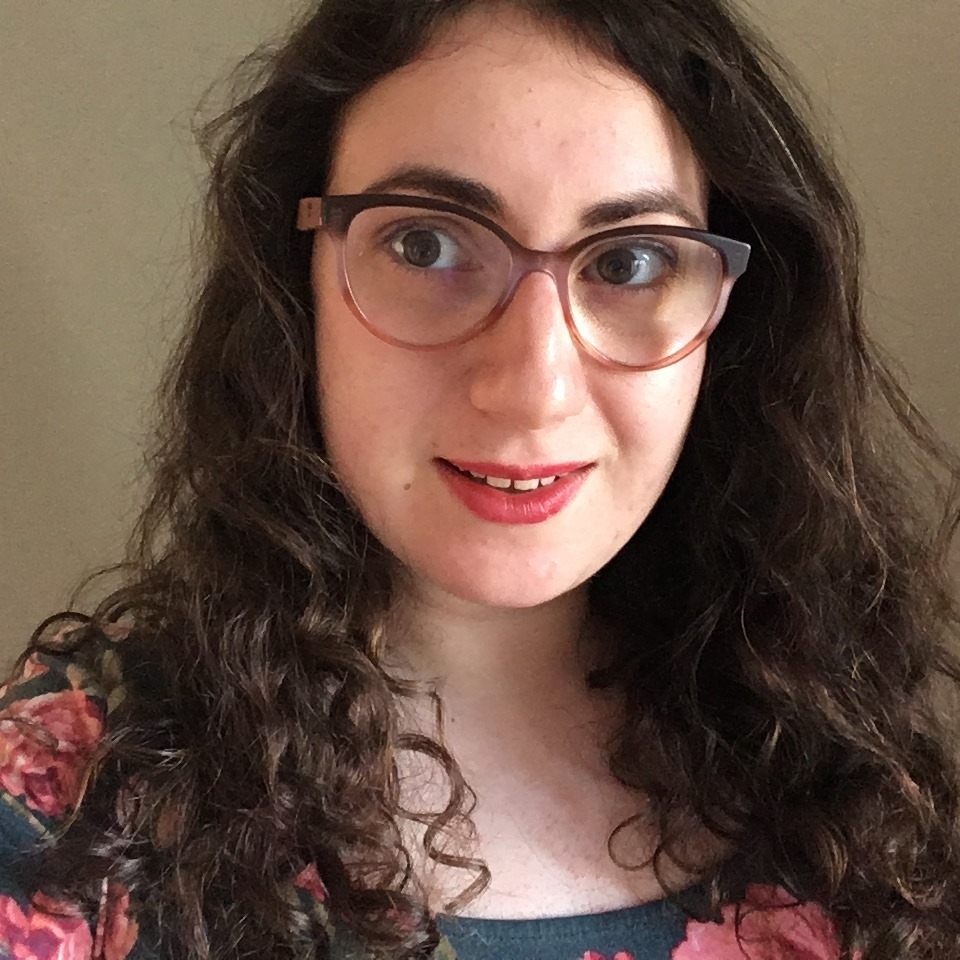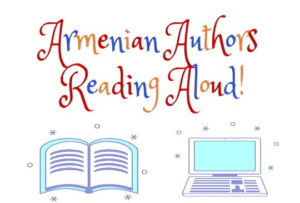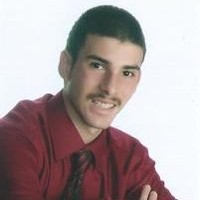
Sharisse Zeroonian is an author and filmmaker who currently resides in Belmont, MA. In 2018, Zeroonian graduated with a Bachelor of Science degree in Film & Television at Boston University. She has been featured in The Armenian Weekly, Angie’s Diary, and other magazines. Her poem Breakfast was broadcast on “Poetry Sunday” at WCAI 90.1 FM on Cape Cod. She has also directed three films: Big People Talking (2016 Short Film), Well Water (2017), and The Mouse in The Bread (2018). Zeroonian is currently working on a comedy-drama television series, One Plus One Is Two and a comedy web series, Sandbox Police.
 Her most recent initiative—“Armenian Authors Reading Aloud”—has been sponsored by Amaras Art Alliance. It’s an online experimental project that invites Armenian writers and poets from around the world to document themselves on-camera reading their own work.
Her most recent initiative—“Armenian Authors Reading Aloud”—has been sponsored by Amaras Art Alliance. It’s an online experimental project that invites Armenian writers and poets from around the world to document themselves on-camera reading their own work.
The following is an interview conducted for the Armenian Weekly by Massachusetts-based radio production director, Salvador Lopez.
Salvador Lopez: What messages do you communicate through your films and stories?
Sharisse Zeroonian: One of the things I try to do in both my Armenian and non-Armenian themed work is show the extraordinary within the ordinary. I especially try to write stories that show marginalized people having the same normal experiences as anyone else. So if someone reads the stories I submit to this paper and says, “It’s too American,” my argument is that the Armenian story is the American story. I feel like a majority of the literature surrounding foreign cultures in general focuses exclusively on immigration and assimilation – which is fine, but that’s been explored to death, is not something many of us personally know, and is only the tip of the iceberg. I try to either satirize some of these trends or omit them completely to say that people are more than just the politics that surround “what” they are. In my Armenian stories, I try especially hard to show all the different possibilities for who Armenians can be, which are endless; we can work at aquariums or be tattoo artists. We can be married, happily single or divorced. We can go to college or choose not to go to college. We can be totally immersed in the community or prefer to spend time with people outside of it, etc. But in general, I hope that my writing can especially connect with people who don’t necessarily fit the mold of what they have been told they are “supposed” to be.
S.L.: Are there any past events that have happened or emotions you have felt in your life that have sparked you to write about these thoughts?
S.Z.: There’s a lot, but I think the root of all of those is me feeling like there’s some sort of design flaw in who I am. That finds its way into my characters, because a lot of them deal with identity or existential crises and have a hard time relating to others or figuring out their places in the world. That’s true of my non-Armenian stories, but it also extends to my Armenian-themed stories as well. Getting in touch with the Armenian side of myself has always been a struggle; I’ve always felt like the boy in the bubble at Armenian school and community events – guess it’s my own fault; being zany and free-spirited – especially as a female – doesn’t work in your favor when your culture is more on the old-fashioned side. I am also fascinated by the intricacy and messiness of family relationships, and that’s because…well, we don’t have enough space in the paper for that.
S.L.: What helps you write?
S.Z.: Music is a huge source of inspiration for me, probably more so than actual literature. You could play a drinking game with all the times I’ve mentioned music in my work (actually, no, please don’t. That’s a very bad idea). In fact, I wrote one of my short stories, Drowsy, which was published in the Weekly, after listening to Crosby, Stills, and Nash’s “Suite: Judy Blue Eyes,” which is about two people who are ending their relationship while still acknowledging that they still love each other very much. Going for a walk helps, too; I’m a pretty restless person, so walking around helps me calm down enough to actually piece the chaos in my head together into something coherent.
S.L.: Before the writing process, do you think about the audience and demographic that your work is intended for?
S.Z.: That’s a great question. To some degree, yes. Obviously, I don’t build the story around my intended audience, but I definitely do make some tweaks to it based on who I imagine my readers or viewers will be. For example, when I was writing the pilot for my television show (which is a comedy-drama about a special education advocate whose family is writing a book about her life), I asked myself, “Is this something I want children to watch with their parents?” The answer was yes, of course, because parent-child relationships are the bread-and-butter of the show. So that informed how I wrote the pilot episode – everything from the language the characters use when they speak, to the type of humor; I had to tow the line between making it family-friendly without dumbing it down. On the flip side, I do have a web series – about a group of college friends who continue their college radio show post-graduation as a video podcast – which is not family-friendly at all, and I intended it to be that way because one of the main topics the show explores is censorship and creative freedom. So naturally, the characters are not always going to be on their best behavior or use clean language all the time, and so the show is more geared towards adults. So yes, it is something I consider.
S.L.: What are some of your goals as a writer and filmmaker?
S.Z.: I hope to sell my TV pilot to a major network or streaming platform (when coronavirus blows over, of course), develop more television shows and films, and write enough stories to compile into a collection.



Be the first to comment